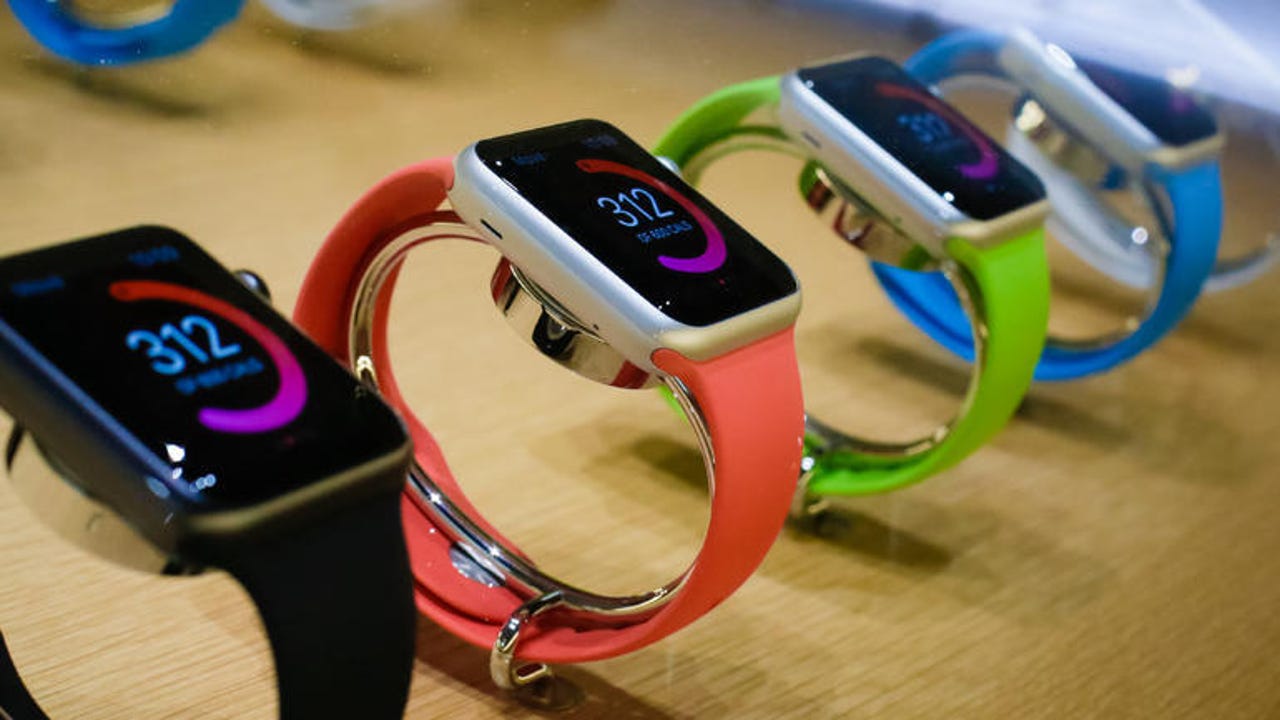No, the Apple Watch isn't going to be the next iPhone

Even if the Apple Watch accounts for half of the market, in four years' time that's only going to be around $10bn in revenue -- about the same as two or three weeks' iPhone revenue right now.
Discussing Apple's first-quarter results, CEO Tim Cook said it was the best-ever performance by the Apple Watch both by revenue and devices sold, with "holiday demand so strong that we couldn't make enough".
"Apple Watch is the best-selling smartwatch in the world and also the most loved, with higher customer satisfaction in its category by a wide margin," said Cook. He went on to describe it with typical Apple understatement as "the ultimate device for a healthy life and it's the gold standard for smartwatches. We couldn't be more excited about Apple Watch".
Apple doesn't break out numbers for the Apple Watch, which is still listed under 'other products' along with Beats headphones, Apple TV, and the iPod. These accounted for just over $4bn in revenue for the first quarter (down eight percent year-on-year, likely due to the performance of Apple TV).
It's therefore impossible to gauge Apple Watch revenues accurately -- one estimate put it at $6bn in its first year.
Still, at roughly the same point in its life, the iPhone was generating about $1.2bn in revenue, before accelerating rapidly into the revenue machine it remains today. While it's hard to say, Apple Watch revenues could actually be around the same level right now, and perhaps higher.
So does that mean the Apple Watch is about to become as big as the iPhone?
Unlikely.
Analyst group Juniper is predicting solid-if-unspectacular growth in smartwatches over the next few years, at a compound annual growth rate of 13 percent, reaching $21.5bn per year by 2021. The US and Europe will account for over half of sales, says Juniper.
Apple Watch and beyond: The strange history of smartwatches, in pictures
Now $21bn sounds like a big number until you put it into context: Apple's iPhone revenue just for the quarter was $54bn. If Juniper is right, and even if the Apple Watch accounts for half of the market, in four years' time that's only going to be around $10bn in revenue -- about the same as two or three weeks' iPhone revenue right now.
So it's unlikely that the Apple Watch will see the same rapid acceleration in revenue. The smartwatch market won't mimic the smartphone market, and nor will smartwatches replace smartphones any time soon.
James Moar, senior analyst at Juniper Research, said that, in terms of units shipped and usage, "Apple pretty much is the smartwatch market at the moment," accounting for around half of sales.
And while smartwatch sales are on an upward trend, "The use case is still not really there, particularly for the more complex ones," he said.
Fit for purpose
Fitness tracking is the only selling point right now, said Moar, pointing to how Apple has pivoted its offerings towards enhancing fitness and wellbeing as well as releasing the Nike + model to cater to the fitness audience.
"It's still a market that's looking for a reason to be, but it is slowly expanding by virtue of more vendors getting aboard and more people hearing about the category," he said.
Along with problems like battery life and the bulk of some devices, there's an issue in that many smartwatches have too many functions. Consumer electronics companies thought that they should be building devices with as much capability as a smartphone, when buyers really only want a few things in a watch, like step tracking or alerts.
As such, many vendors are now experimenting with 'smart-analogue' watches which look like normal watches but may also track steps. Vendors may also have to adjust to a smaller market, with long product cycles compared to smartphones.
And so far, smartwatches haven't come up with the revolutionary breakthroughs that propelled the iPhone forward, either.
"If you think about when the iPhone happened it wasn't that it was introducing a smartphone, it was introducing a new way of interacting with smartphones -- a new user interface. Smartwatches haven't really done that; they've just put the smartphone interface onto another platform," said Moar.
But it's also possible to see the Apple Watch as part of Apple's wider strategy. Tim Cook mentioned it alongside the new Air Pods and Beats headphones as part of a "rich line-up of wearable products".
"We are leading the industry by being the first to integrate home automation into a major platform with iOS 10. With Siri and the new home App in iOS 10, everywhere you go you can easily and securely control all of your home accessories with your iPhone, iPad, or your Apple Watch," said Cook.
Apple is currently building its IoT strategy around things that carry with you -- phone, watch, headphones. That makes sense: as batteries get better and processors smaller and faster, smartwatches (and headphones, and glasses) will take on more and more jobs from smartphones.
Apple needs to be at the front of this wave, or miss losing out to hungry rivals. The Apple Watch will be part of a constellation of connected objects that we carry around. It won't replace the smartphone, but that doesn't make it a failure.
